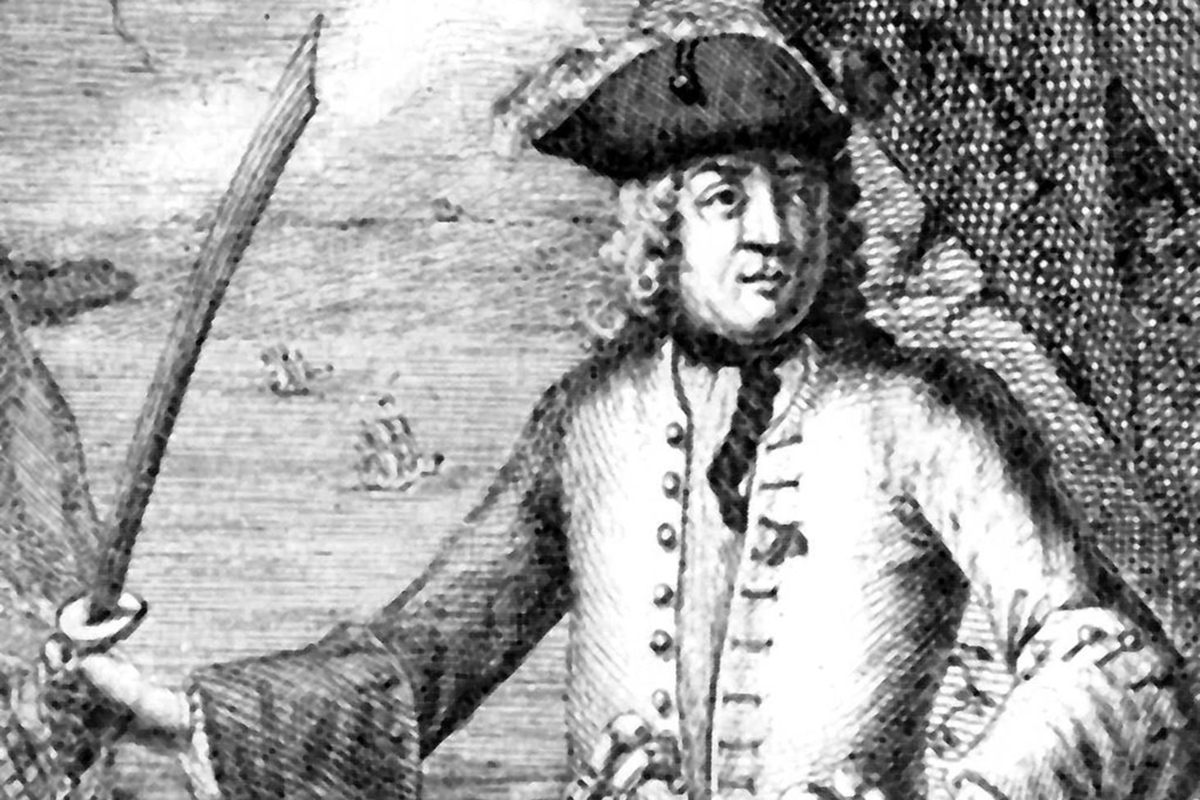The mystery of the “king of the pirates” who disappeared after a major sea robbery has been revealed.
[ad_1]

In 1695, Henry Avery led his crew of 160 men in the most profitable heist in the history of high seas piracy, collecting gold, silver, sapphires, emeralds and diamonds worth over £85 million in today’s money. He became the most wanted criminal of his time, but disappeared without a trace and was a legend for 300 years, writes The Observer.
Now shipwreck investigators Dr Sean Kingsley and Rex Cowan claim to have solved what they call the longest unsolved case in the history of piracy: the “Pirate King” entered the service of King William III of England as a spy.
Operating in a tangled web of royal espionage, conspiracies and subterfuge, Avery dedicated himself to protecting the English crown from dangers at home and abroad, apparently trading some of his loot for a royal pardon.
The evidence comes from a previously unpublished encrypted letter written by “the pirate Avery” from Falmouth in Cornwall. It lay forgotten in a Scottish archive after being misdirected.
It dates to December 1700, four years after he disappeared after the plunder of a ship belonging to the Mughal Emperor Aurangzeb, then the richest man in the world.
Kingsley and Cowan discovered that the letter linked Avery to one of the first major spy rings, believed to have included Daniel Defoe, author of Robinson Crusoe, and Thomas Tenison, Archbishop of Canterbury. Together they defended Protestant England from the threat of “Papism”, Catholic invasion from France and the seizure of the throne by the enemy.
The letter was found by Cowan’s late wife Zelide while the two of them were tracking down sunken Dutch East India Company merchants.
Kingsley says, “She knew she had stumbled upon a once-in-a-lifetime historical treasure.”
Sean Kingsley, a maritime archaeologist, editor-in-chief of Wreckwatch magazine and co-director of the Bahamian Missing Pirate Ship Project, spoke about how excited we were to discover the letter, given Avery’s importance in the history of piracy and our “eternal fascination” with such sea dogs.
Curiously, half of the letter cannot be read because it is encrypted with a digital code, he said. “Who wrote in code in 1700? British diplomats and spies.”
“We spent years trying to unravel Avery’s secret,” said Rex Cowan. Various experts, including those who worked for the CIA, tried in vain.
In one passage, Avery wrote: “I am not at all concerned that the 29 f B26 tank is not T9211597.” The meaning of these words remains a mystery for now.
Elsewhere he mentioned meeting his contact that evening and working with him “without arousing suspicion on any account.”
The letter notes that the response was to be sent to the “post office” in Falmouth. Kingsley said: “There is a post office in Falmouth in 1700. This is where parcels are sent from. So if you want to be able to influence, intercept and disrupt threats, this is where you want to go.”
Kingsley and Cowan claim that Defoe was in Cornwall at the time, posing as a shipwreck treasure hunter named Claude Guillot. In 1692, Defoe worked in intelligence for William III and invented a digital code for sending letters.
The recipient of the letter was the Rev. James Richardson of Orange Street, London. Research revealed that this was the address of the first public library in the capital, which Tenison founded with Richardson as librarian. The address is so obscure that it is one of several features that convinced Kingsley and Cowan of the letter’s authenticity: “No swindler would have thought of sending a forged letter there.”
One of the king’s aides saw Tenison illegally opening letters from Catholics that were intercepted at the post office, and described him as a master forger – “an art so dangerous that I understand, unless his Majesty commands, he is unwilling, so that everyone knows about him.”
Research published in Kingsley and Cowan’s new book, The Pirate King: The Strange Adventures of Henry Avery and the Birth of the Golden Age of Piracy, suggests that for Avery, piracy was revenge. He was orphaned as a child and his governor stole his inheritance.
Accounts of his fate ranged from fleeing to Madagascar to being tricked and dying penniless in Devon. Most of the infamous pirates were hanged or drowned at sea, but Avery simply disappeared.
“In the 18th and 19th centuries, more books, ballads, poems and plays were written about Avery than any other pirate,” Kingsley said. – In hotels and taverns they sang ballads about him – he was a hero. For the authorities, he was an enemy of all humanity, he was wanted dead or alive. But they couldn’t catch him.”
Pirates continue to capture the imagination today, he added: “They’re like working-class heroes. This is largely due to the daring call to “drop everything and tell the whole world to go to hell.” It was Avery who ushered in the golden age of piracy.”
[ad_2]
Source link








